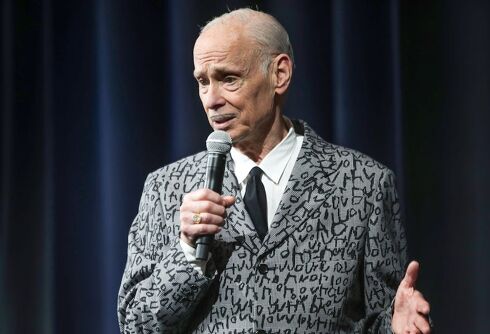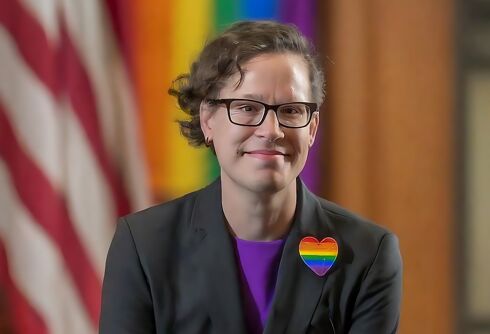LONDON – Being gay can be given up similar to smoking or drugs, claims a U.K. reverend who also alleges that the British police force is being “manipulated by homosexuals.”
Rev. Peter Ratcliff of St. John’s Church of England in Colliers Wood, London, made the remarks while defending controversial U.S. Christian speaker Tony Miano, who was arrested in London last week for anti-gay speech.

Miano, a former Los Angeles County sheriff’s deputy turned full-time evangelist, was arrested on July 1 while preaching in downtown Wimbledon, claiming that same-sex relationships are an “abomination,” views he also repeated on a YouTube video he posted.
Ratcliff attacked the police for its handling of the incident, saying, “If anybody should be charged with hate it is his accuser who appears to have sworn at him.”
Never Miss a Beat
Subscribe to our newsletter to stay ahead of the latest LGBTQ+ political news and insights.
“In the USA there are now groups of ex-homosexuals who have been able to repent of homosexuality in the way that one might for example give up cigarettes or drugs,” said Ratcliff.
“I call upon Merton police to publicly apologize for such high handed use of the law and for allowing themselves to be manipulated by homosexuals who are evidently trying to silence those who not merely have Biblical and moral objections to homosexuality but are proclaiming the way of eternal life through Jesus Christ to all people regardless of their present circumstances,” he said.
A Metropolitan Police spokesman confirmed that under Section 5 of the Public Order Act 1986, officers have the power to arrest someone on suspicion of using threatening, abusive or insulting words or behavior within the sight of a person likely to cause harassment, alarm or distress.
Miano defended his actions stating: “The language I used was not homophobic, as I was not promoting fear or hatred of homosexuals.”
Ratcliff is a known controversial cleric who opposes the ordination of women in the Anglican Church.
In 2010, he called for banning Princess “Diana-style funerals,” where friends and family praise the deceased, as they were “little better than an entertainment show.”













